Junkyard Find: 2002 Daewoo Nubira SE Sedan

After 16 years of writing about junkyard vehicles, I've come to appreciate the marques that have so few models sold in the United States that I can capture the entire span of their offerings in the automotive marketplace, just by visiting my local Ewe Pullets enough times. Daihatsu sold but two models here. Sterling had two. Merkur also had two. Daihatsu, however, sold three car models during its three years in the United States. We saw a discarded example of the entry-level Daewoo subcompact, the Lanos, a couple of months back. Five years ago, we admired the Daewoo luxury sedan, the Leganza. Today, it's the turn of the third member of the 2000-2002 Daweoo triumvirate: The compact Nubira, an example of which I found in a Denver self-service yard last week.
The Nubira was supposed to compete against such affordable machinery as the Chevy Cavalier and Toyota Corolla. For a brief period, it seemed that such a dream might be possible.
The 2002 Nubira SE (the base trim level) had an MSRP of $11,699, or about $16,419 in 2023 dollars.
Just about the final vestiges of passion and mechanical competence had been squeezed from the Chevrolet Cavalier by 2002 (after two decades of J-Body sales), but the price of the Cavalier was pretty good: $14,035 for the cheapest possible four-door version ($19,697 today).
That's right, the Nubira cost $2,336 less than the Cavalier, which amounts to $3,278 in today's American dollars).
If you wanted a Corolla sedan in 2002 America, you had to pay $14,170 for the most stripped-down possible Corolla CE (Cheap Edition).
So the point of the Nubira was that you could get a Corolla-sized car for a price closer to that of the wretched Hyundai Accent.
North Americans had been buying Daewoos for quite some time by the 2000s, with the 1988-1993 Pontiac LeMans (United States) and the Asüna GT/ Passport Optima (Canada) paving the way for Daewoo-badged machinery.
There were problems. The CEO of Daewoo fled South Korea in 1999 to avoid criminal charges, the company went bankrupt in 2000, and the bad news for Daewoo just kept coming as the new century began.
Before Kim Woo-Chong went on the lam, he thought up a brilliant idea for selling Daewoos in the United States: Get college students to be Daewoo "Campus Advisors," loan them free cars, and have them pitch the Daewoo brand to their fellow students.
This worked about as well as you'd have expected, and so Daewoo left North America in 2002. After that, the Pep Boys were hired to handle warranty service on all those very affordable Leganzas, Nubiras, and Lanoses.
This car just squeezed past the 100,000-mile mark during its 21 years on the road.
The engine is a 2.0-liter DOHC four-banger rated at 129 horsepower.
The base transmission was a five-speed manual, but the original purchaser of this Nubira splashed out an additional 800 bucks for the automatic (that's around $1,123 in today's bucks)
The interior of this car looks pretty good, but depreciation for Daewoos happened quickly once the company fled our continent.
It looks like a fairly minor wreck took it out of the rat race for good.
We continued to buy new Daewoos after 2002, but they bore the badges of other brands. The next-generation Nubira appeared here with Suzuki Reno badges in 2005. The revised Lanos came back as the 2004 Chevy Aveo. Even the new Leganza returned in 2004, as the Suzuki Verona.
You'll need to suspend some disbelief here.
[Images: The Author]
Become a TTAC insider. Get the latest news, features, TTAC takes, and everything else that gets to the truth about cars first by subscribing to our newsletter.

Murilee Martin is the pen name of Phil Greden, a writer who has lived in Minnesota, California, Georgia and (now) Colorado. He has toiled at copywriting, technical writing, junkmail writing, fiction writing and now automotive writing. He has owned many terrible vehicles and some good ones. He spends a great deal of time in self-service junkyards. These days, he writes for publications including Autoweek, Autoblog, Hagerty, The Truth About Cars and Capital One.
More by Murilee Martin
Latest Car Reviews
Read moreLatest Product Reviews
Read moreRecent Comments
- ToolGuy I could go for a Mustang with a Subaru powertrain. (Maybe some additional ground clearance.)
- ToolGuy Does Tim Healey care about TTAC? 😉
- ToolGuy I am slashing my food budget by 1%.
- ToolGuy TG grows skeptical about his government protecting him from bad decisions.
- Calrson Fan Jeff - Agree with what you said. I think currently an EV pick-up could work in a commercial/fleet application. As someone on this site stated, w/current tech. battery vehicles just do not scale well. EBFlex - No one wanted to hate the Cyber Truck more than me but I can't ignore all the new technology and innovative thinking that went into it. There is a lot I like about it. GM, Ford & Ram should incorporate some it's design cues into their ICE trucks.



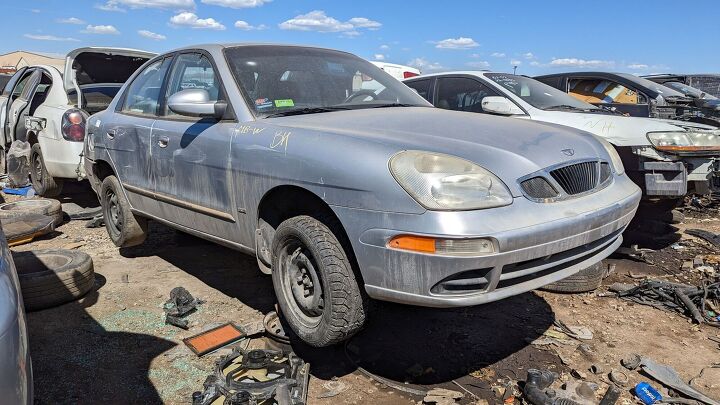




























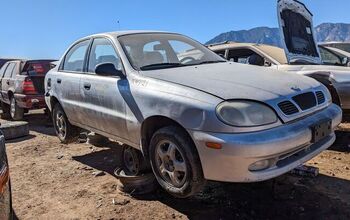
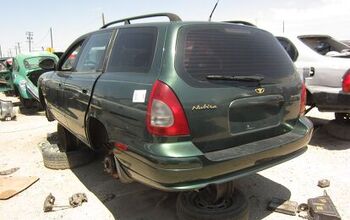
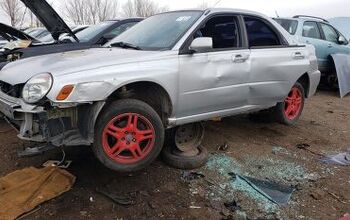
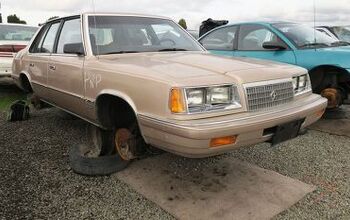













Comments
Join the conversation
Daewoo couldn't make it as a start-up. Their rebadged products killed off Suzuki as a US market car brand. Putting Chevy and Buick badges on them made for happy customers though, since GM buyers expect so little.
You missed the most interesting part of Daewoo US history. In 2001 GM bought Daewoo, but left the US part of it out of the deal. They kept the brand going around the world... but not in the US. They actually cut the US arm of Daewoo off, so all the "dealers" were left without cars to sell, and there were a few lawsuits that went nowhere.
Now, they are known as GM Korea and produce Chevys (Trax and Trailblazer plus parts of the Bolt) and Buicks (Encore and Envista) for the US market.